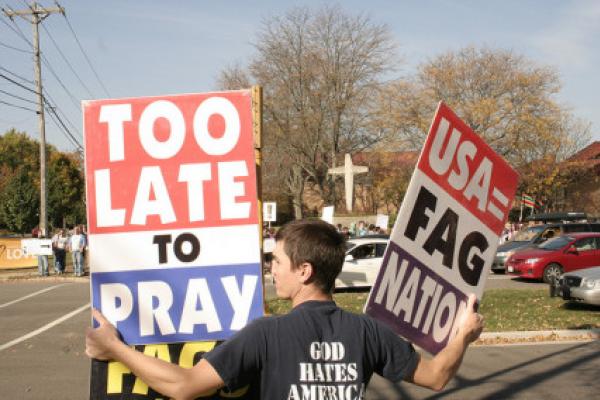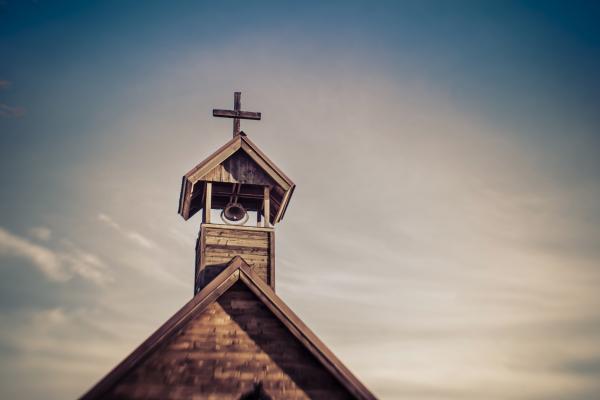When I was invited by the Drug Policy Alliance to participate in a pastors’ conference at the American Baptist College in Nashville on drug decriminalization, I didn’t know quite what to expect. In a room filled with African-American pastors, I felt like a fly on the wall of someone else’s family reunion. I began to see our criminal justice system, and our country, through different eyes.
I’ve reported on the conference elsewhere, but there I learned that while 13 percent of drug users are African-American, they account for 38 percent of drug arrests and 59 percent of drug convictions. Feeling disproportionately targeted, the pastors want drug usage to be treated as a health issue rather than a crime.
As the conference unfolded, it dawned on me that I, as part of the majority culture, perceive law enforcement in ways strikingly different from the way many African-Americans see it. I have always experienced American authorities as my protector. If the police pull me over for speeding, it is nothing more than an annoyance, and the ticket won’t break me. Though I’m no fan of traffic cameras and drones, for the most part the police are there to watch out for me, and they do. It has always been that way for my family, as we can trace our roots of privilege back to Northern Europe in the early 1500s. Those in charge are the good guys who protect us and our stuff.
But for these African-American pastor-friends of mine, it’s a different story.
WASHINGTON — In response to five “We the People” petitions, the White House condemned the actions of the Westboro Baptist Church but said it is powerless to list the Kansas church as a hate group and remove its tax-exempt status.
The White House response on Tuesday said the federal government does not maintain a list of hate groups, instead leaving that task to private organizations, such as the Anti-Defamation League and Southern Poverty Law Center. Both have called Westboro a hate group.
The Christian church is full of Christians, right?
Sadly, the answer you'll get to that question is heavily dependent on whom you are asking. Certainly, the church should be seeking to follow Christ, seeking to follow the teachings of Jesus. However, increasingly, there are those who claim the church is full of hypocrites. They are not saying the church only has hypocrites. That's clearly not true. They are simply pointing out there are surprisingly high numbers of people going to church, calling themselves Christians but whose actions run counter to what Jesus taught. I believe we can do better.
Egypt's military forcefully seized power from President Morsi on Wednesday. An emergency meeting of top civialian and religious leaders has convened to create an interim government and plan for new elections. The whereabouts of Mr. Morsi remain unknown. The New York Times reports:
The developments followed the lapse of a 48-hour deadline imposed by the military generals on the increasingly isolated president to meet the demands of millions of Egyptians disaffected with the one-year-old governance of Mr. Morsi, the first democratically elected leader of Egypt.
Read more here.
WATCH LIVE:
Early Wednesday morning, at least 17 people were killed in the first U.S. drone attack in Pakistan since May 28.
According to NBC News:
“PESHAWAR, Pakistan -- At least 17 people were killed in a U.S drone attack in the volatile North Waziristan tribal region in northwest Pakistan early Wednesday, officials said.
"Local residents and security officials said the aircraft fired four missiles and struck a house at Sara-e-Darpakhel area of Miranshah, which is located near the Afghan border.
"'I never heard such a huge drone strike before,' local resident Nasrullah Khan said. 'They simultaneously fired four huge missiles and jolted the entire town.'"
Al Jazeera reported that the Pakistan foreign ministry condemned the attack:
“In a press release on Wednesday, the Pakistan foreign ministry said the strikes were a violation of Pakistan’s sovereignty and territorial integrity. The statement described the attacks as 'counterproductive, entail loss of innocent civilian lives and have human rights and humanitarian implications.'"
Oddly enough, whenever I think about eternal life, Animal Collective come to mind.
That might — well, almost certainly will — need some clarification because, as many Christians might be quick to point out, shouldn’t Jesus be the first person that comes to mind, or maybe living on some clouds in a golden city or something?
Yes and no. What comes to mind when I think about eternal life is painted by Frederick Buechner’s entry on the subject in his book Wishful Thinking, which I studied for a class in college. Buechner takes religious terms and eloquently and poetically explores what they might mean.





